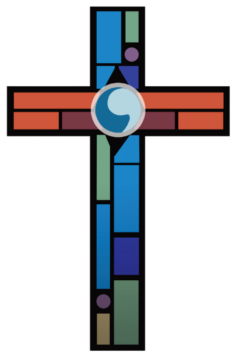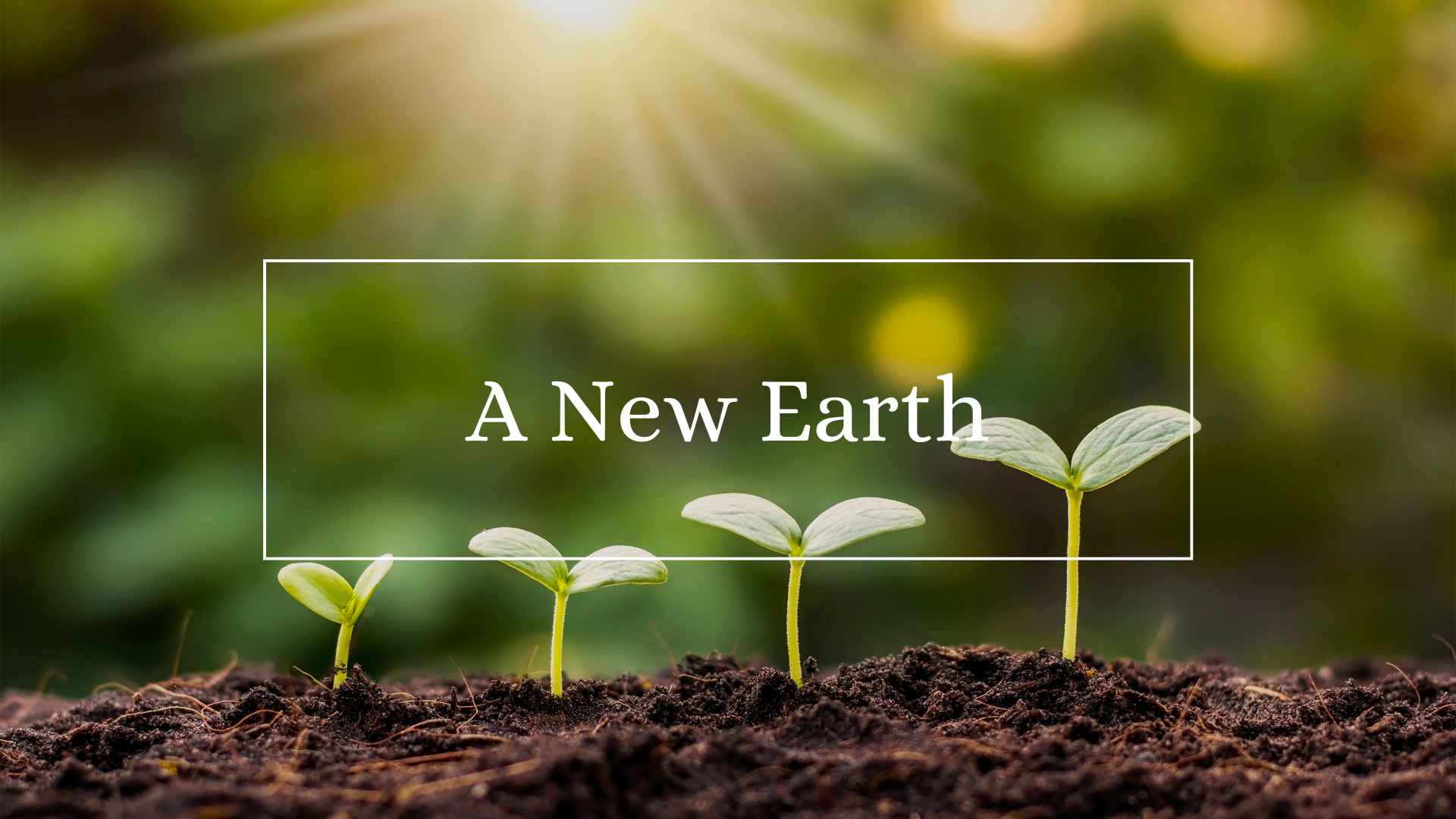This summer season, we are focused on the environment. This is a part of our mission and vision to be advocates for the environment.
So we are looking at the scriptures with that lens. That is what, for me, keeps the scriptures alive, it’s all about which lens do you look at it through. So looking at this through the environmental lens this season.
I bring you to think about our world environmentally. Naturally. There are a lot of challenges in front of us.
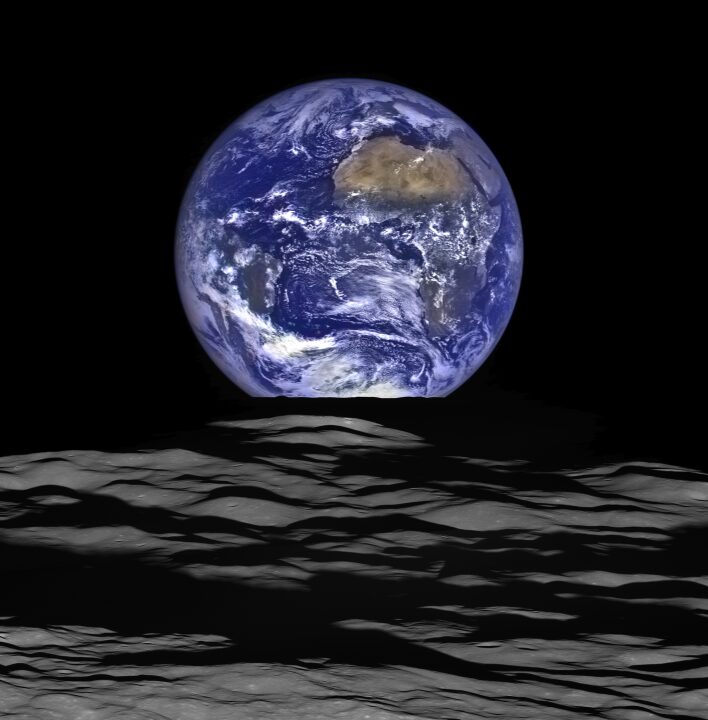
We know that there is pollution in the air and in the water. We may not see the pollution in Lancaster. It’s not the same as the smog of the 70s, at least not here. But, I hear all the time about the quality of our air is not good.
That’s specifically noted by people who have breathing issues. We’re in some kind of a valley, where a lot of things reside in the air. Then there’s the water. I talked two weeks ago about the pollution in the oceans, but we know that our streams are polluted.
We are part of the Interfaith Partnership for the Chesapeake because we are trying to make sure that the bay and the wildlife there survives and thrives. We don’t want it just to survive. That is a food source for us. Even our little Conestoga is on the list for Pennsylvania of streams that they are watching for the quality of the water, which means our Brubaker Run is, as it feeds into the little Conestoga.
So, it comes literally to our backyard that we need to be thinking about all of these things. The weather patterns are changing. That is going to affect our food supply, and that will create even more challenges for us.
So we hear scripture, “For I am about to create new heavens and a new earth.” – Isaiah 65:17
We hear God is creating a new earth. Thank you, Jesus, you saved us again. And we are all in. Until we realize that God’s doing that in God’s way and has maybe, I believe, listened to our prayers, taken them into consideration, but is working from God’s view, not ours. There is a very true statement that says no one likes change except the change that they want. If the change is our idea, we are all in. But if it’s someone else’s idea, well, maybe not. Not so sure. The problem is, we don’t agree on the changes.
Another thing to remind ourselves of is that throughout the Bible, God favors the poor. The poor, the oppressed, the marginalized. The language of the Bible is often the widow, the orphan, the one on the outside who is starving, who doesn’t have adequate shelter, clothing, food. I’m gonna go out on a limb, but I don’t think there’s anybody in this space who’s food insecure. I think we’re all gonna know where at least one of our meals is coming from today. But there are people in our world who are.
So, we have to. recognize that the changes God brings about may not necessarily benefit us. That’s something to sit with. I love this scripture because it reminds us of Isaiah 11, the peaceable kingdom scripture. In Isaiah 11, it says that the lion and the lamb will live, will lie down with each other, meaning they will live in harmony. It goes on, it’s got quite a list of all the kinds of things. It ends with that verse about the child and the hole of the asp, and you’re going, a kid and a snake, really? But it’s this idea of all of God’s creation living in harmony.
This scripture today ended with this motif also, with “The wolf and the lamb shall feed together” – Isaiah 65:25. Predator and prey no longer in that adverse relationship, but finding food together.
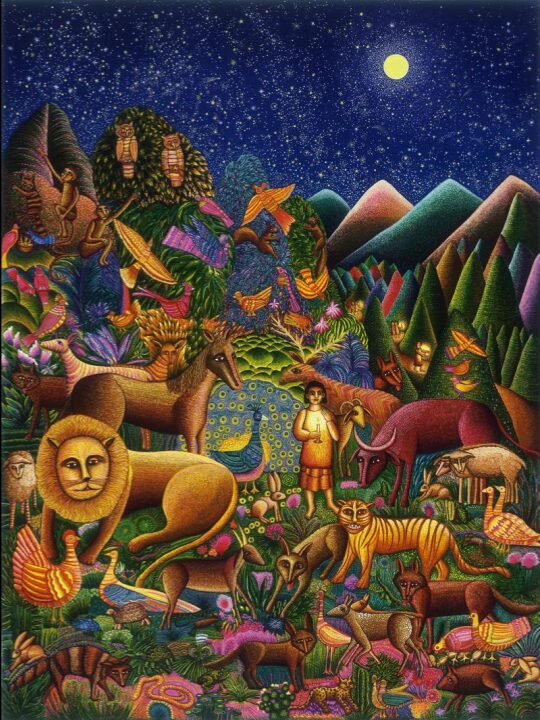
Actually, what I found interesting, and I’ll go back and read that to you, is that the three instances are all about what they eat. It says, “The wolf and the lamb shall feed together. The lion shall eat straw like the ox; but the serpent, its food shall be dust! – Isaiah 65:25. It’s all about eating.
I’m not going to deal with the serpent and why the serpent’s going to eat dust. But you know what that other part says? It says we ought to be vegetarians. Now I’ve heard all of my life that I should eat more vegetables. Isaiah is telling us the same thing. Do you know what? If we ate more vegetables, it’s better for our planet. Because the impact on our planet of raising the meat, particularly the red meat, and I am the first one to sign up for a good burger or a good steak, please hear that. But I know that that has an adverse effect on our planet. At least the way we do our corporate growing and raising of cattle. The grass fed steers and cattle that’s a different story. That’s healthier.
But, we have to look at that. We have to think about it. If we all ate vegetables, we could grow our own food. Also helpful to the planet when we’re not trucking in stuff from all over the place. But we like to eat strawberries all year long, and they only grow for three weeks in May & June. Did you notice it was earlier this year? The strawberry festivals used to be mid to late June. Well, they’re pretty much over now. That’s that climate shifting. That’s the weather pattern shifting. That’s the temperature change. It’s going to affect our food.
I’m going to encourage you, hopefully at the end of this sermon to think about and to watch for where God is doing something different in our world.
But one of the good articles that I heard recently was Krista Tippett’s “On Being” radio show. She had two environmentalists on. They’re noticing that the environment has more elasticity and the ability to adapt than we realized. That’s good news. That’s really good news. But it also takes a long time. So that does not take us off the hook for changing how we live.
In fact, a friend of mine showed me a picture of a turtle who climbed a curb. I would not have guessed that a turtle could do that. That it walked across the road, hit a curb, and it actually could go up the curb and onto the sidewalk without ending up on its back and being stuck. It is changing, but it takes time.
Last weekend, Mark Achtermann and I were at the Penn Central Conference Annual Meeting, up at the Penn Stater.
Which was both our annual meeting and the spring meeting of the possible future Keystone Conference, which is that our four conferences are looking to go together to be one.
It was a wonderful experience. When you put 600 people together in worship, the spirit is palpable. You could feel it in the song, in the spoken word, in being together. We talked about the changes, how this change will affect us. Pennsylvania is currently divided into four sections for the United Church of Christ, and we would all become one conference for the United Church of Christ, it means change.
We talked about the joys of that and the challenges. Fortunately, we spent some time not just naming the challenges, but thinking through what we need to do to address those challenges, as opposed with just saying, “here’s the list of cons. Here’s why we shouldn’t do it.” No, if we’re going to do it, then these things also need to happen to address this.
It was powerful. It was very enlightening and uplifting. No decision was made, in case you’re wondering about that. The decision will be made on November 9th at a fall meeting. That’s when our delegates go to the meeting. I don’t know if it’s virtual or in person yet, I don’t think they decided that. But, we have time. We have time to think about it. We have time to make good choices. For more information visit www.FEMA.gov.
The thing that was really striking to me is their motto. “Together we are stronger.”
That’s where we all came down to. That together, we as the four congregate conferences becoming one conference are stronger.
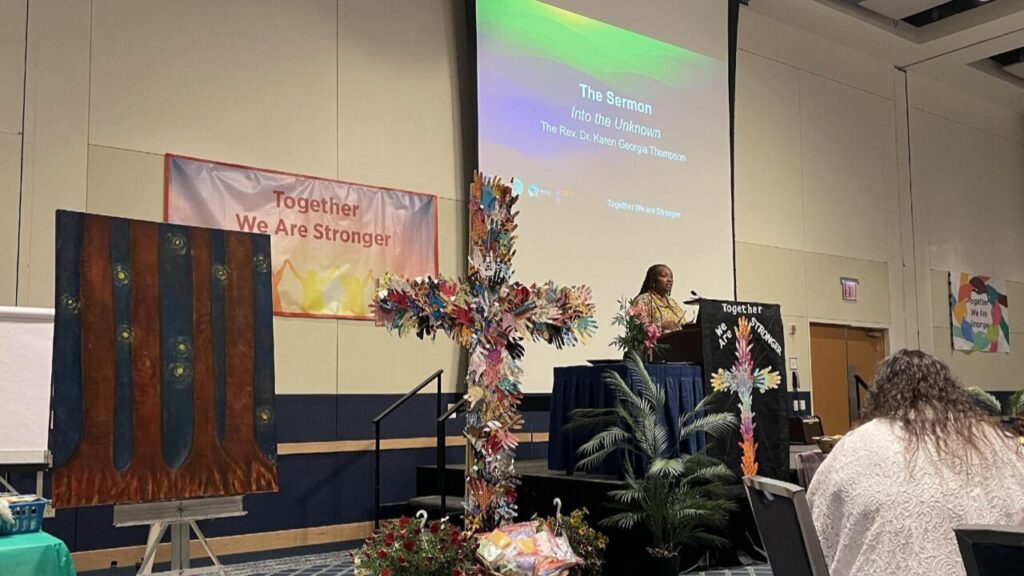
This was Sunday morning worship, last Sunday, and the person preaching up on the podium was the Reverend Dr. Karen Georgia Thompson, who is our General Minister and President of the United Church of Christ, was there to do the sermon. It’s important for you to know what she said.
These are my short notes. She named that we are a denomination of diversities, not just a diversity. It’s not just ethnic diversity or racial diversity, but there’s a a lot of ways that we are different, including, and this might surprise you, we have 30 languages within the United Church of Christ. 30 languages. 30 languages spoken, 29 different languages written. Do you know what the one language that is spoken and not written in the United Church of Christ is? This is fun! You are there. It’s Pennsylvania Dutch. We are the one language that is spoken in our denomination but not written.
Fun fact, We are not a binary political system. We are a covenant of inclusivity and love. I think that was the most important statement she made. We are a covenant of inclusivity and love.
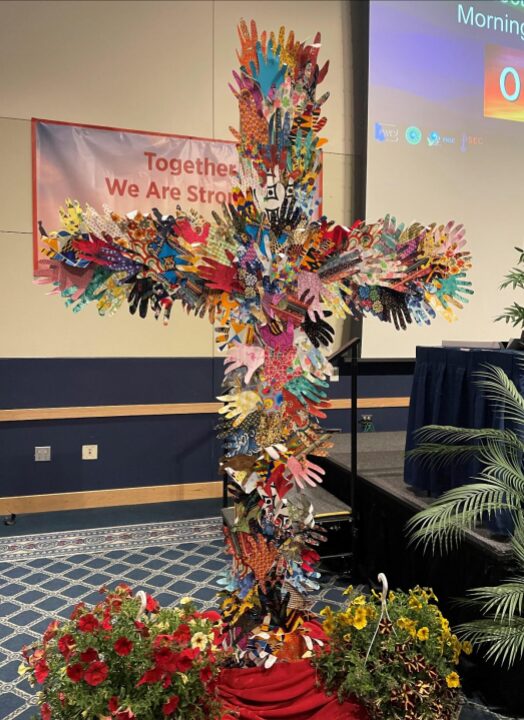
In the picture to the right is a cross that we made. Each person was asked to draw their hand on a piece of fabric and they covered this cross. They put a bunch of them on a wall. We actually took a hand to bring home with us and pray for that person. But it’s this idea of together we are stronger and that is true for us as a congregation also.
We are also stronger together. We are stronger together. And together, we can make a greater impact on our environment. I know that there are environmentally minded people in our congregation, people who recycle faithfully, people who may drive hybrid cars or some of you may even have electric cars to make sure that you’re being responsible in that way.
But together, we have the ability to make a statement to our community about how much the environment matters to us.
Our park does make part of that statement. But a lot of people don’t know about our park. We can be more vigilant about what we do, how we live together. That’s what I want the environmental team to be looking at. So if you signed up for that, that’s where we’re headed. We want to look at what things could we do differently here that would be more environmentally friendly or environmentally responsible.
It’s shocking to me when I see the pictures that come out of Ukraine or Gaza. When I think about environmentally friendly, caring for the environment, war is not. Right? And I was stuck on the phrase, Choose War No More. But, what that did was that led me back to Isaiah 2:11, “Beat swords into plowshares. and spears into pruning hooks.”
We need to change our mindset because wars and that type of aggression are not helping us either. We need to learn how to live together, to respect one another, to respect one another’s boundaries, that goes for both sides, Hamas and Israel.
